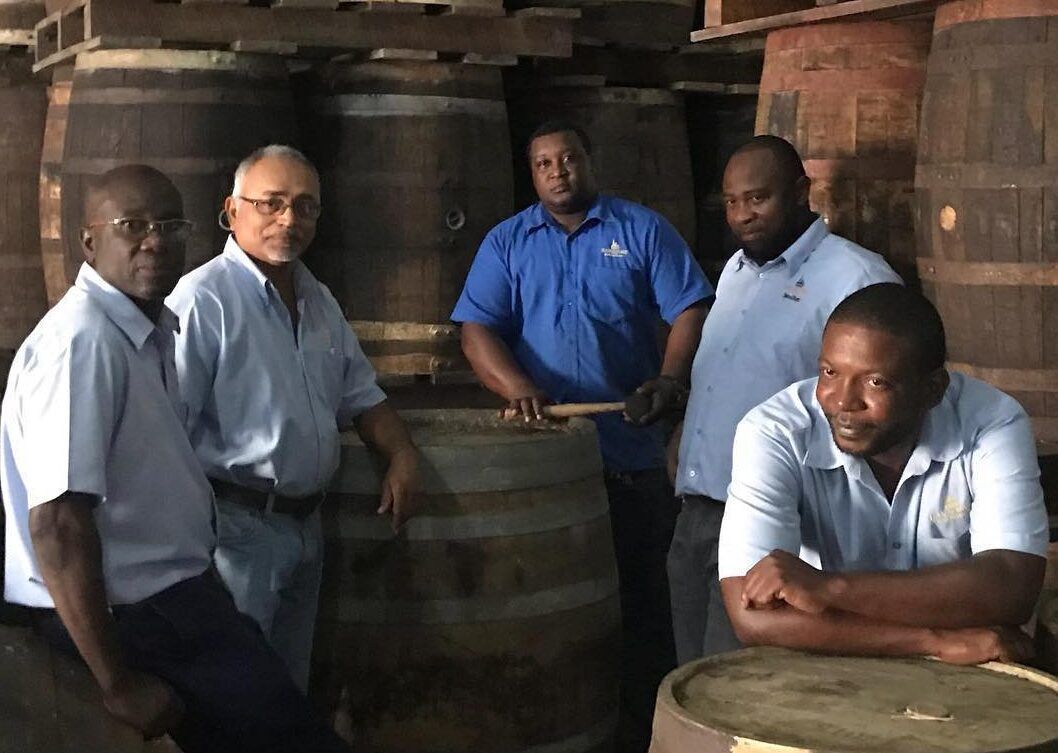“One 6,000-bottle label called Sassafras that we produced for an Italian client saw three years in Bourbon casks before 11 years in Cognac ones,” says Foursquare’s Dario Folkes.
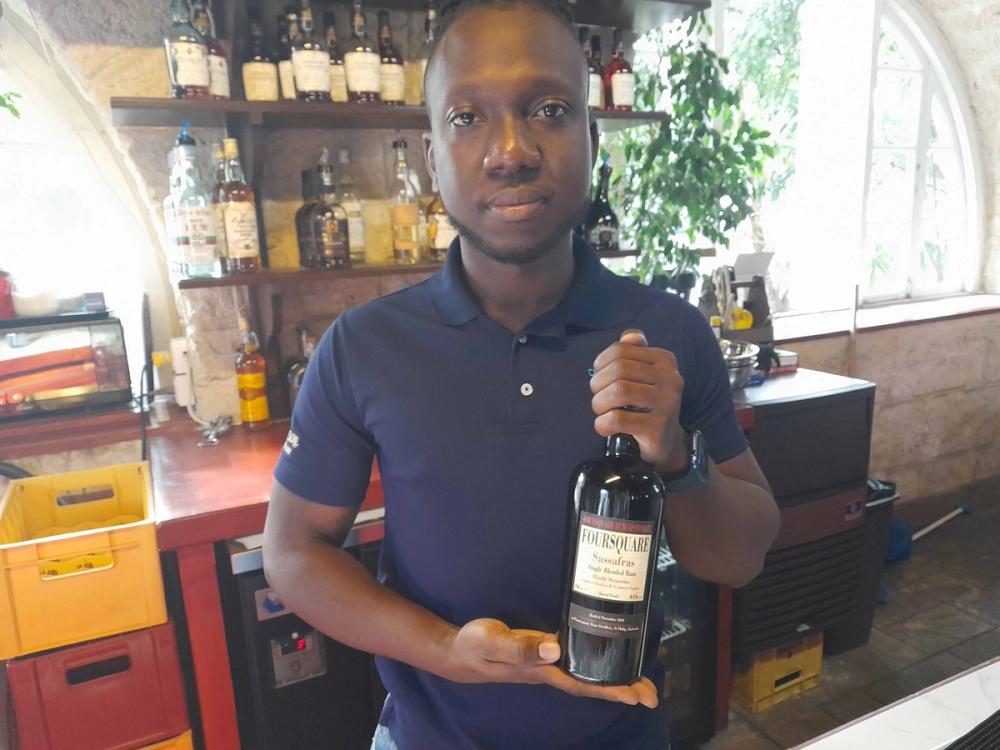
Foursquare’s Dario Folkes says: “The majority of what we produce are blended rums from a combination of pot and column stills,”
Rum drinkers around the world have been coming to terms with the recent announcement that Barbados’s most famous rum, Mount Gay’s 1703 Master Select, is no longer being produced. The odd bottle of it may still be found in a couple of stores on the island, but its scarcity value has more than doubled its retail price to around US$300. Not even the Whisky Exchange in London has a bottle of it.
Lack of old stock at Mount Gay is the reason – the 1703 requiring rum that is aged between ten and thirty years in cask – but the good news from Barbados, as I discovered on a recent visit there, is that the island’s other main distillery, Foursquare, is filling the void. Whereas Mount Gay is the oldest rum distillery in the world, being now over 300 years old, Foursquare is one of the youngest. It was built in 1996 after the Seales, a Bajan family, bought it as an abandoned property the year before. From 1720 to 1989 it had been a sugar factory.
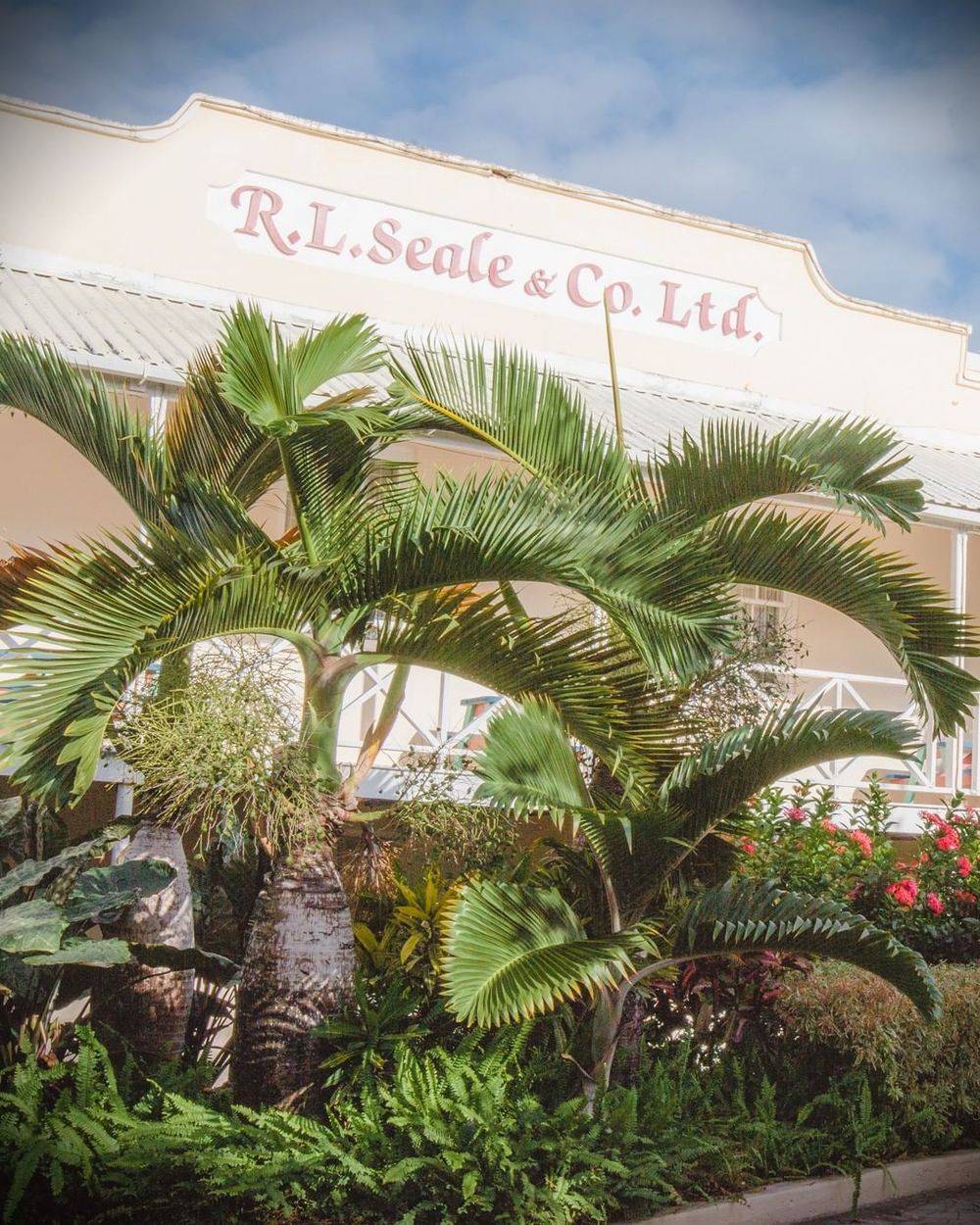
Established in 1926 R.L. Seale & Co. Ltd. is the original trading company and parent company of Foursquare Rum Distillery
In less than three decades, Richard Seale, the master blender, has turned Foursquare into one of the most enterprising and successful distilleries in the Caribbean. It makes a variety of rums of all quality levels, from everyday drinking Cavalier to the premium Doorly’s brand and its own super-premium Foursquare labels. The latter are aged in a variety of different casks for 10 to 19 years, although the oldest don’t always fetch the highest prices. The 10-year old Criterion, for example, is amongst the Whisky Exchange’s priciest rums at £850 per bottle (70cl), being aged first in ex-Bourbon barrels and then former Madeira casks.
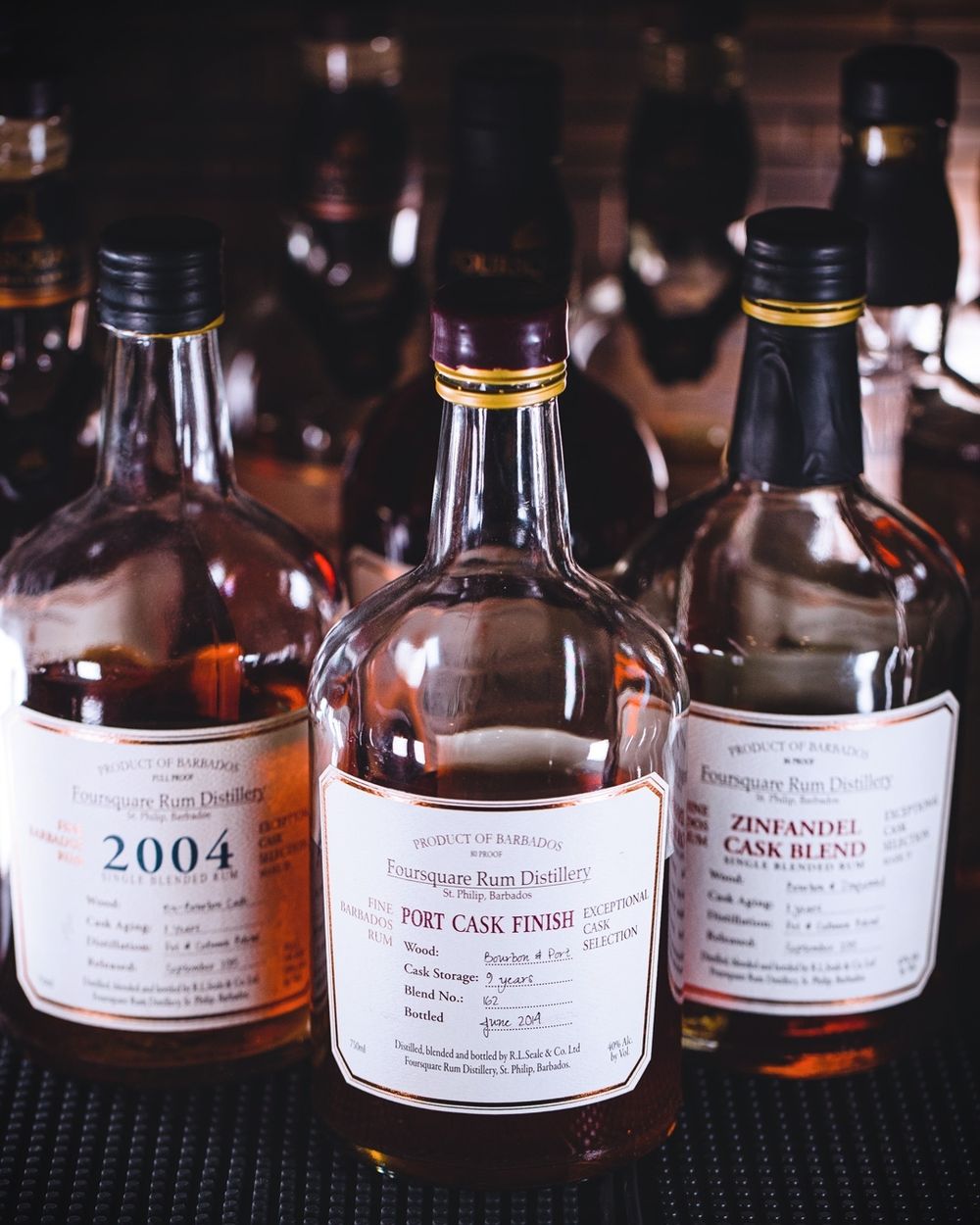
It is this second maturation in casks after an initial period in Bourbon ones that makes the Foursquare labels so intriguing. The Indelible (11-year old, 48% abv) saw secondary maturation in ex-Zinfandel barriques; the Detente (10-year old, 51% abv) in ex-Port casks; the Redoutable (19-year old, 61% abv) in ex-Madeira casks; the Touchstone (14-year old, 61% abv) in ex-Cognac barrels; the Sovereignty (19-year old, 62% abv) in ex-Sherry butts. For variety, the Isonomy (17-year old, 58% abv) was aged solely in former Bourbon casks.
Dario Folkes, the Foursquare tours manager who has been involved in the production process, gave an interesting insight. “The majority of what we produce are blended rums from a combination of pot and column stills,” he said. “Richard Seale has employed at least 10 different types of casks in the last 10 years for second maturation, with Sauternes and Marsala being other examples. One 6,000-bottle label called Sassafras that we produced for an Italian client saw three years in Bourbon casks before 11 years in Cognac ones.”
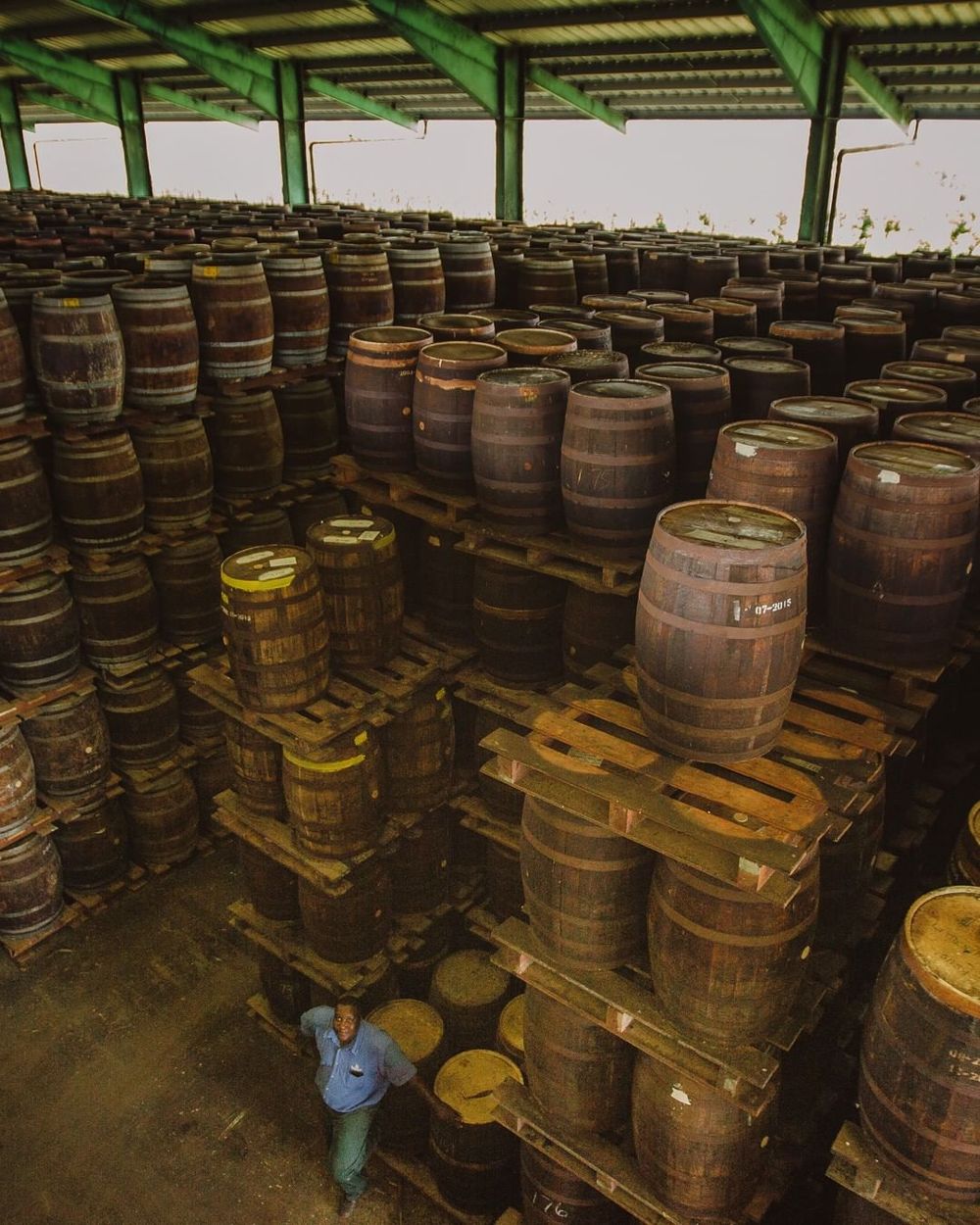
Caldric Morgan monitors maturation in open-sided barrel warehouses to allow climate and surroundings to impact the process.
Seale is determined that Foursquare prices are not too high on release. “Richard wants good rums at affordable prices,” Folkes continued. “I think our rums – and the value you’re getting – do have the best price points for any rum. For me, consumers buy into stories – whether true or fake. They just want something they believe in – we try to focus on the education and go with the true story.”
Although English-speaking islands have traditionally made rum from molasses, and the French-speaking ones from sugar cane juice, Seale has partially bucked that trend. The French Caribbean islands such as Martinique and Guadeloupe refer to their production process as ‘rhum agricole’ and the English-speaking islands’ as ‘rhum industriel’. Seale has added in a proportion of rum made by the ‘agricole’ method, giving his blends more elegance and florality. Folkes would not reveal exactly what percentage, however.
“We do a combination of molasses and cane juice,” he said. “From 2016, we added cane juice to some of the blends, based on Richard’s preference. Mount Gay don’t currently do it but are looking to. The other thing we are doing differently is higher alcohol levels in our rums – up from the usual 40% or so to 60% or more. Why? It relates to flavour and character. If any distiller had the ability to produce their product at the higher range they would. By law, they used to be restricted. Mount Gay did one recently for their 300th anniversary that was pretty high.”
Incidentally, Mount Gay’s new master blender, Trudiann Branker, who took over from the legendary Allen Smith, is the first woman to be given the role.
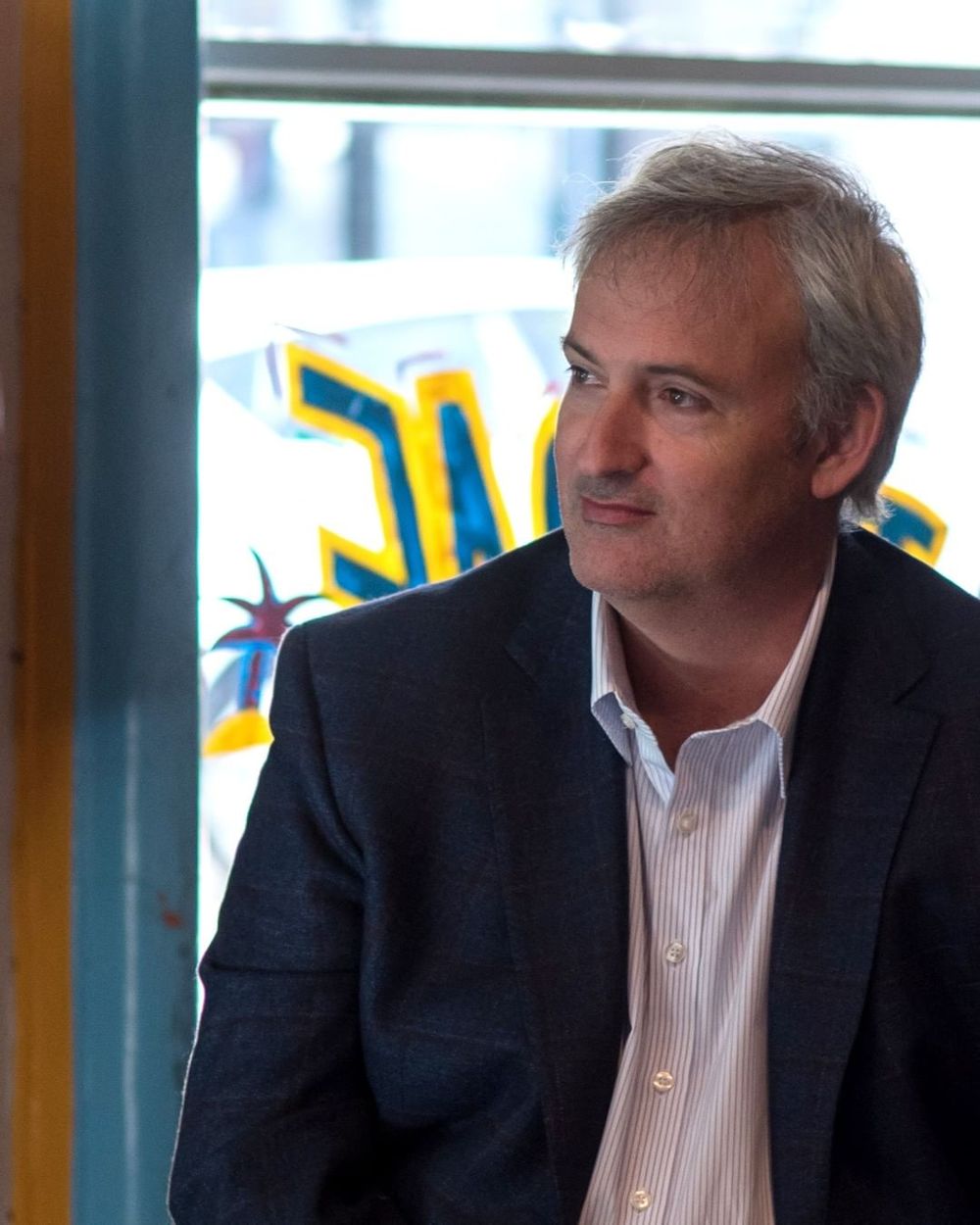
Richard Seale is the fourth generation of the family which started as a blended and then expanded into distillation during the mid-late 1990’s.
No discourse on Barbadian rum would be complete without mention of the island’s boutique producer, St. Nicholas Abbey. It is the only one that makes its rum from sugar cane syrup rather than molasses. The quality of their rums is high, but so too are their prices with their 15-year old selling in the Whisky Exchange for £247.
Geoffrey Dean was a guest of Santosha Hotel, Saint Andrew, Barbados
